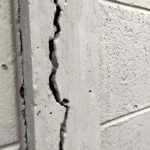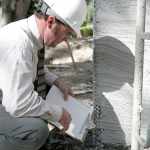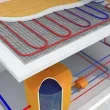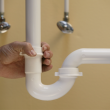Photo from Unsplash
Closing on a house can be an exhilarating experience. Your next chapter awaits – life is full of welcome change and endless possibilities. In order to ride that wave of optimism into your new home, the best gift you can give yourself is that of preparedness.
In order to confidently move forward, it is essential that your new home is in good shape. Do not presume you can fix issues that are far above and beyond your capabilities. This can lead to serious accidents.
You should be moving into a safe place. It should not be in a state of complete disrepair. It is the responsibility of the previous owners to ensure they have fixed what they agreed to be fixed prior to your move-in date.
The best advice we can give to buyers is to invest in a thorough home inspection. However, beware that when you receive a thorough home inspection, the list of potential problems gets longer. You shouldn’t expect for everything on that list to be fixed by the sellers either. You’ll have to learn what’s cosmetic in nature that you can live with, what you can fix on your own at an affordable price, and what’s unsafe and too expensive to DIY.
Reasonable repairs to request from sellers
Make no mistake – unless you are moving into a brand-new home, you can and should request repairs be made on the home before you close. It is important to note, however, that there are some general guidelines to keep in mind regarding potential repairs.
First and foremost, be aware of whether it’s a buyer’s or seller’s market. What you request could potentially impact an offer if the home is in high demand. Similarly, a seller may be more willing to negotiate more significant repairs if the greater power is in the hands of the buyer.
In either case, the primary areas to focus on include electrical, plumbing, roofing, and HVAC systems.
Electrical
Faulty electrical wiring can lead to house fires. In fact, electrical systems are the third leading cause of home fires according to the Electrical Safety Foundation International. It is absolutely within the buyer’s purview to request repairs be made in this regard.
It is also reasonable to request that exposed wires be carefully concealed before you close on the house. The older the home, the greater the potential need for these types of repairs.
Your inspector should physically test electric appliances too, making sure everything is up to code and in safe, working condition. Make sure a smoke detector is installed and working.
Buyers likely won’t want to request the installation of a carbon monoxide detector, but you might get a lower rate on homeowners insurance if there are safety features like this present in the house.
Some smaller tasks, like replacing cracked outlet covers, and cosmetic changes, like changing a light fixture, are to-do’s that are up to you, the buyer.
Plumbing
Leaky or corroded pipes are a significant risk, as they can lead to structural damage and mold growth. Drainage issues are also justified concerns. As such, it is absolutely acceptable for a buyer to have major plumbing concerns addressed and fixed before closing on the house.
Have your well, water heater, and water softener inspected too. There’s nothing more frustrating than taking an ice-cold shower after a long and laborious day of moving.
After receiving the inspection, you’ll likely have to make some trade-offs. Replacing the heating elements of a water heater is fairly simple, even for first-time homeowners, but the cost of buying and installing a brand new appliance is at least a grand.
Roof leaks
Roofing is also a factor when determining potential repairs to request. A poorly-maintained roof can lead to major problems, including difficulty getting insured. Find out how old the roof is, and how well the seller has kept up with its regular maintenance.
You do not want to be saddled with the responsibility of replacing a roof immediately after having purchased a home. However, some repairs, like nail pops, may be minimal and specific to only a few damaged shingles that do not require a fix prior to purchase.
This goes for siding too. Some siding materials, like masonite, requires maintenance every three months or so. The homeowner will have to fix nail pops on a seasonal basis to avoid water damage and rot.
Ask your inspector if there are any foreseeable moisture problems with your siding. Buyers can fix a few nail pops themselves, but the cost to replacing siding on a house starts at $5,000.
Heating and cooling
If an HVAC system is past its prime, improperly installed, or has not been subject to regular maintenance, it is the right of the buyer to request that repairs be made. Again, water damage can become an issue, which we have already noted is extremely dangerous for your house and your health. Not to mention, a poorly ventilated system can also lead to a fire hazard. Additionally, make sure the ductwork is in good shape and up to code.
Home protection for the future
One of the best ways to protect yourself as a buyer is to request the seller include a one-year home warranty with the sale of their home if one hasn’t already been included. There are various warranties to choose from; it’s important to do your research ahead of time to determine which home warranty is best for you.
A home protection plan is beneficial to both parties. The seller can streamline maintenance while the house is listed on the market. By having a home warranty already in place, repairs that will surface in a home inspection are typically covered.
As a buyer, you have the peace of mind knowing there is a warranty already in place to cover issues that could potentially arise in your first year of home ownership.
Bottom line
Repairs a buyer should not request include cosmetic updates or repairs that cost less than $100. If you, as a buyer, are intending to remodel a kitchen or another room in the home, those costs will be your burden. Similarly, yard aesthetic is not an issue to mention.
As a home buyer, you should be prepared to put in some elbow grease of your own. No home is perfect, and you should not expect minor repairs be made for your convenience. Sellers have every right to turn down offers if a buyer has asked for too much.
Determining which repairs to request as a buyer can be a delicate balance to strike, but ensuring the safety of you and your family is paramount. You should ask that major repairs be made first.
Start with anything that your inspector believes to be not up to code. Then, decide what you’re able to live with and what you’re not.
You should also consider how repairs could actually make a problem worse. For example, if your dishwasher is not fixed to the cabinets or countertop, it’s likely making a bit of a racket. However, if you have quartz countertops, you will not want to ask the sellers to attach it. Attaching the dishwasher can actually crack the countertop, which is unsightly and an expensive fix.
If your requests are not met, buyers always have the freedom to simply walk away from the home sale. This is your new chapter, and presumably, you do not want to unwittingly be writing a horror story.

















